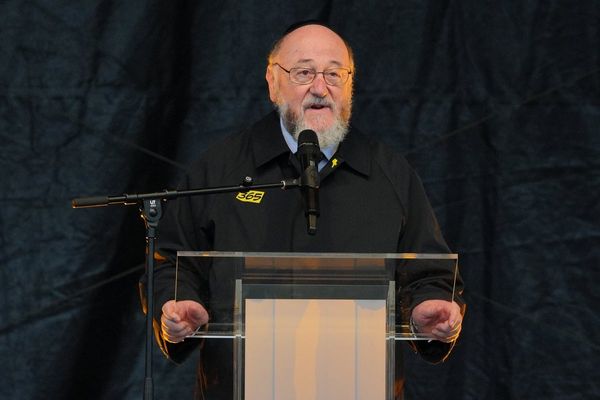
Government censorship of the internet in China is by now hardly shocking or even newsworthy. But under President Xi Jinping, the system colloquially known as the "Great Firewall of China" has become more sophisticated through the deployment of more human censors and algorithms that better track anti-government content.
The expanded censorship mechanisms demonstrated their power in the early stages of the coronavirus outbreak in Wuhan. Before the public was aware of a virus outbreak, Chinese censors were already working hard to block mention of the virus on local social media sites. Early censorship efforts suppressed timely warnings from whistleblowers like the late Dr. Li Wenliang, part of what may amount to a cover-up operation that delayed medical response to the epidemic.
As COVID-19 continues to spread around the world, Singapore is emulating the response of the Chinese government in downplaying the virus's threat.
In February, Singapore's Health Minister Gan Kim Yong directed a government office established under the Protection from Online Falsehood and Manipulation Act (POFMA) to issue a "Targeted Correction Direction" to Facebook. The order was an attempt to censor a post that accused the government of being unable to trace the origin of COVID-19 cases in the city-state.
Since the COVID-19 outbreak, the Singaporean government has on four separate occasions ordered social media giants to correct “online falsehoods” through the invocation of POFMA, The Strait Times reported. In response to Facebook's criticism of the state's internet policing, Gan retorted that the regulation of online information is needed to avoid undermining the confidence in state institutions and the political system.

The injunction to suppress what it deems coronavirus misinformation is only the latest example of the Singaporean government deploying the POFMA to control online speech. After POFMA, or the fake news law, came into effect on October 2, 2019, it has been used on multiple occasions against opposition and criticisms. NGOs and international media, echoing social media firms, have called POFMA an "abusive" censorship tool that can suppress freedom of speech.
COVID-19 may serve to further align Chinese and Singaporean views on the state’s leading role in shaping the public narrative in times of crisis. Both Chinese and Singaporean media reported on a phone conversation held on January 29, in which the Singaporean Foreign Minister expressed to his Chinese counterpart Wang Yi the admiration, confidence, and firm support Singapore has for China’s handling of the epidemic. The fawning phone call reflects the long history of friendly relations between Chinese and Singaporean politicians, recalling Lee Kuan Yew's admiration for the Chinese Communist Party leadership.
As Singapore converges toward Chinese practices of online information control, the city-state's status as a lodestar for both business practices and policymaking means that its controls will likely be replicated in Southeast Asia and beyond. Indonesia and Thailand have already charged citizens with spreading false information online about the COVID-19 epidemic. While social media giants like Facebook may make a show of opposition to POFMA, they are also publicly declaring their intention to fight coronavirus-related fake news, by employing thousands of "moderators" who review and take down content, not unlike the hiring of censors at Chinese internet firms.
Indeed, there is a worry that Singapore's actions may only represent the vanguard of Chinese-style online censorship's global spread. While the United Kingdom has put in place initiatives that combat "disinformation" related to COVID-19, the United States and Europe are now regulating content on social media networks.
The ability of social media to spread negative news about the coronavirus will only convince government authorities to keep a tight leash on what social media can and cannot display on their websites. The result may very much be an irreversible global convergence toward the kind of internet censorship the Chinese government has been putting in place for over a decade.
In the pre-internet era, governments around the world maintained their status as gatekeepers of public information — or manufactured consent — through frequent communication with and selective leaking to relatively few global and local media outlets.
As negative news about the coronavirus spreads panic and threatens economic growth, the same governments are becoming more steadfast in their efforts to maintain their gatekeeper role in the internet age, in part by regulating social media platforms. The results of such attempts at control may very well lead to the establishment of Chinese censorship practices as a global norm. Were this to happen, Singapore would be looked upon as a crucial case study for how these practices took root.
READ NEXT: Coronavirus Technology Carries Troubling Side Effects for Privacy, Press Freedom
TNL Editor: Nicholas Haggerty (@thenewslensintl)
If you enjoyed this article and want to receive more story updates in your news feed, please be sure to follow our Facebook.







